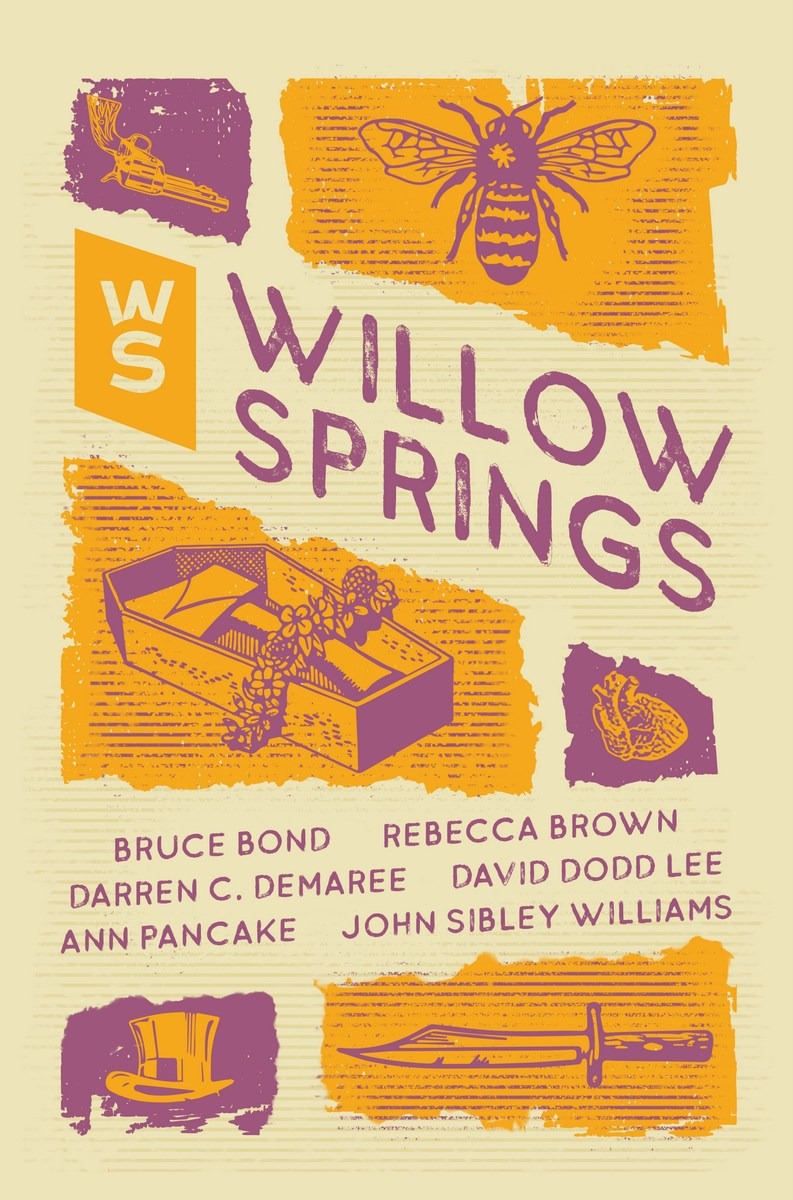
About John Sibley Williams
Jennifer Christman
John Sibley Williams is the author of As One Fire Consumes Another (Orison Poetry Prize, 2019), Skin Memory (Backwaters Prize, University of Nebraska Press, 2019), Disinheritance, and Controlled Hallucinations. A nineteen-time Pushcart nominee, John is the winner of numerous awards, including the Wabash Prize for Poetry, Philip Booth Award, American Literary Review Poetry Contest, Phyllis Smart-Young Prize, Nancy D. Hargrove Editors’ Prize, Confrontation Poetry Prize, and Laux/Millar Prize. He serves as editor of The Inflectionist Review and works as a literary agent. Previous publishing credits include: The Yale Review, Midwest Quarterly, Southern Review, Sycamore Review, Prairie Schooner, The Massachusetts Review, Poet Lore, Saranac Review, Atlanta Review, TriQuarterly, Columbia Poetry Review, Mid-American Review, Poetry Northwest, Third Coast, and various anthologies. He lives in Portland, Oregon.
Website: https://www.johnsibleywilliams.com
Facebook: https://www.facebook.com/john.sibleywilliams
Twitter: https://twitter.com/JohnSibleyWill1
A Profile of the Author
Notes on “My Heart is in the Mouth of Another Heart” and “Suture”
“My Heart is in the Mouth of Another Heart” hurt to write as much as it hurt to experience. One afternoon while strolling by a local cemetery I noticed a family of deer nuzzling the grass between headstones. Being the veteran section of the cemetery, these gorgeous animals cut a stark contrast with the flaccid, windless, yet still colorful flags and the stoic, age-stained white crosses that differentiated one religion from another. Witnessing the astoundingly simple, loving gesture of grazing, almost kissing the earth, I was flooded with contradictory emotions. Yes, something natural, even nutritional, is blooming from the dead. Yet these dead took lives, animal lives too, I’m sure. This poem was my way of coming to terms with this contradiction. Not to judge the dead. Just to kick their dirt around a bit to see what I could unearth. And in the end, I found the living equally guilty. I found myself as guilty of contradiction.
I’m not wholly sure where the inspiration behind “Suture” came from. Perhaps, like most poems, it sprung from a variety of sources that happened to converge at just the right moment, sparking something unique to that brief convergence. As a New Englander by birth yet an Oregonian the past 10 years, I was reminiscing about the old covered bridges that haunted and intrigued my youth. I’d also recently read an article about a bridge collapse in another part of the country. Given my intertest in how the lives and landscapes of small towns affect and define each other, “Suture” sort of wrote itself. Yes, silly as it sounds, I believe poems know what they want to be, and it’s our job to listen to the unwritten poem. The structure also came naturally, on the first attempt, as, at least to my eyes, it resembles a bridge collapse…that failing attempt to span so much white space.
Music, Food, Booze, Tattoos, Kittens, etc.
As a parent of twin toddlers, I haven’t been able to keep up with the newer music I love. My house’s foundations continuously quiver with Baby Shark, Wheels on the Bus, and the like, and such songs drill into my head so deeply as to drown out the rest. But I’ve been steadily infusing the kids’ musical experience, and therefore my own, with the tunes that drive and inspire me. My three-year-old son has finally admitted the “okay-ness” of David Bowie, as long as I don’t sing along with it. He recently said “I don’t hate this” to a Joy Division album, so that’s a step forward. And they’re both beginning to recognize New Order, Tom Waits, and Nick Cave, whose songs I turned into lullabies to rock them to sleep in their infancy. Luckily, Motown utilizes such simple rhythms and pitch perfect harmonies that even the kids allow me some Ronettes, Crystals, Sam Cooke, and Smokey Robinson without complaint. We’re getting there.


